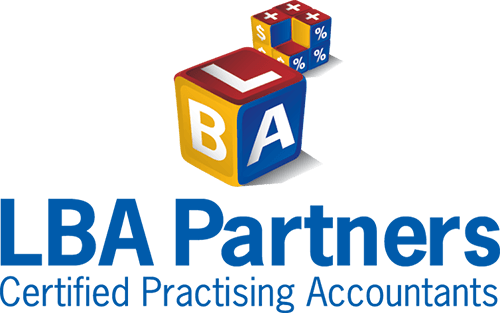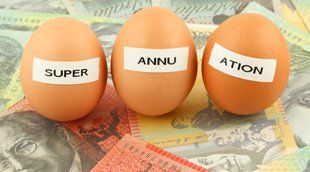Here's our latest newsletter, if you would like to follow up any of the information please contact Linda or Grahame
P r a c t i c e U p d a t e
March 2016
DHS specified benefits and entitlements data matching
The ATO has advised that it will collect information from the Department of Human Services (DHS) for the following benefits and entitlements:
- family tax benefits – part B;
- paid parental leave scheme;
- carers' allowance; and
- Medicare entitlement statements.
This data will be compared with claims made in income tax returns for the invalid and invalid carer tax offset, and for exemptions from paying the Medicare levy and surcharge.
The program will enable the ATO to detect those who are NOT genuinely entitled to claim these offsets and exemptions. Due to a number of legislative changes in recent years, some people continue to claim these offsets and exemptions incorrectly.
The ATO says that it has been undertaking this data matching program for more than five years and intends to continue conducting it for a further three years.
Buyers to withhold tax for ATO when buying certain properties
Editor: Parliament recently passed legislation amending the taxation law to impose withholding obligations on the purchasers of certain Australian assets – generally property purchased from a non-resident. However, the changes will affect most purchases of property in Australia!
The amendments impose a 10% withholding obligation on purchasers of 'Taxable Australian Real Property' (generally, this means an interest in Australian land) from certain foreign residents, as well as certain 'indirect Australian real property interests' (such as shares in companies that own a lot of land) and options to acquire such assets.
The amendments will generally apply where the contract to purchase an applicable asset is signed on or after 1 July 2016.
Tax Warning!
Where the land, or the interest in the land, is worth $2 million or more, the new law requires the purchaser to withhold 10% of the purchase price and send it to the ATO unless the vendor has obtained a 'clearance certificate' from the ATO and provided it to the purchaser prior to settlement.
This obligation arises regardless of whether the vendor is a foreign resident or not.
Example
On 1 August 2016, Harvey enters into a contract to purchase a residential property in an affluent Sydney suburb for $2.5 million, with settlement proposed to occur on 1 October 2016. He does not know whether the vendor is a foreign resident.
Despite many requests from Harvey's lawyer, the vendor refuses to obtain a clearance certificate from the ATO to give to Harvey.
As Harvey is acquiring Australian land with a market value greater than $2 million and he has not received a clearance certificate from the vendor by the time settlement occurs, Harvey will be required to withhold and pay to the ATO $250,000, whether or not the vendor is an Australian resident.
GST implications when employer pays for a super fund's expense
An employer cannot claim an input tax credit where it pays an expense on behalf of a superannuation fund, as the supply is not made to the employer; but to the super fund.
However, if the fund is registered for GST, then it may be entitled to claim an input tax credit (or a reduced input tax credit if the requirements in Division 70 of the GST Act are otherwise satisfied).
For example, assume a super fund engages a legal firm to provide advice about its activities, but the employer connected with the super fund pays the legal fees associated with this advice.
Because the supply of the advice was made by the legal firm to the super fund, the employer is not entitled to an input tax credit (i.e., the employer has not 'acquired anything', even though it made the payment).
However, depending on the circumstances and whether the super fund is registered for GST, it may be entitled to a full or reduced input tax credit.
Editor: The rules relating to GST are more complicated for super funds than for other entities, so please phone our office if you would like discuss this important issue.
Taxpayer not a 'share trader' despite substantial share trades
Editor: In a recent case, a taxpayer undertook significant trades on the stock exchange and made losses, but was still found to be a 'share investor', rather than a share trader, meaning she could not deduct her losses against her other income (i.e., her losses were 'capital losses' that can only be offset against capital gains).
The Facts
The taxpayer (who otherwise worked as a child care educator and earned approximately $40,000 in wages) started trading shares in July 2010, utilising her (and her husband's) savings of approximately $60,000 and a margin loan of initially $40,000.
During the 2011 income year, she made:
- 71 purchases to a value of $379,630; and
- 37 sales to a value of $215,019.
She made a loss on her share transactions during the 2011 income year to the order of $20,000, and she was seeking to claim that as a deduction.
The Decision
The Senior Member of the AAT considered the following factors in deciding that the taxpayer was not a share trader.
Factors in favour:
- the turnover was substantial, particularly having regard to her wages; and
- he taxpayer maintained a home office for the purpose of undertaking the share transactions.
- Factors against:
- the share transactions were not regularly and systematically carried out throughout the 2011 income year – the bulk of the transactions took place in the first 6 months of the 2011 income year, with only 10 transactions of approximately $70,000 in the second half of the financial year.
- the activities were very basic and lacked sophistication to constitute a share trading business;
- there was no demonstrated pattern of trading, although it was accepted there was a business plan even before she later produced written evidence of this; and
- she had no skills or experience or prior interest in shares.
Inactive Trusts – ABNs to be cancelled
The ATO has advised that they will begin cancelling the ABNs of approximately 220,000 trusts, where there is evidence those trusts are no longer carrying on an enterprise.
Trust ABNs will be cancelled from February, where information available indicates that, for the last two years, the trust has not lodged BASs and/or trust income tax returns.
The ATO will send a letter if an ABN has been cancelled, including the reason for the cancellation, and a phone number to ring to get the ABN reinstated immediately if the recipient does not agree with the decision.
Editor: If you receive such a letter and think the trust should still be entitled to an ABN, let us know and we'll try and sort it out for you. Please also let us know if there are any outstanding BASs or returns you need us to lodge!
Please Note: Many of the comments in this publication are general in nature and anyone intending to apply the information to practical circumstances should seek professional advice to independently verify their interpretation and the information's applicability to their particular circumstances.
Management Consulting
We have the know-how and experience to offer advice that helps you run your business more effectively.
Self-Managed Superannuation Funds
At LBA Partners we provide the professional advice you need to manage your own fund and greatly simplify the process for you.



